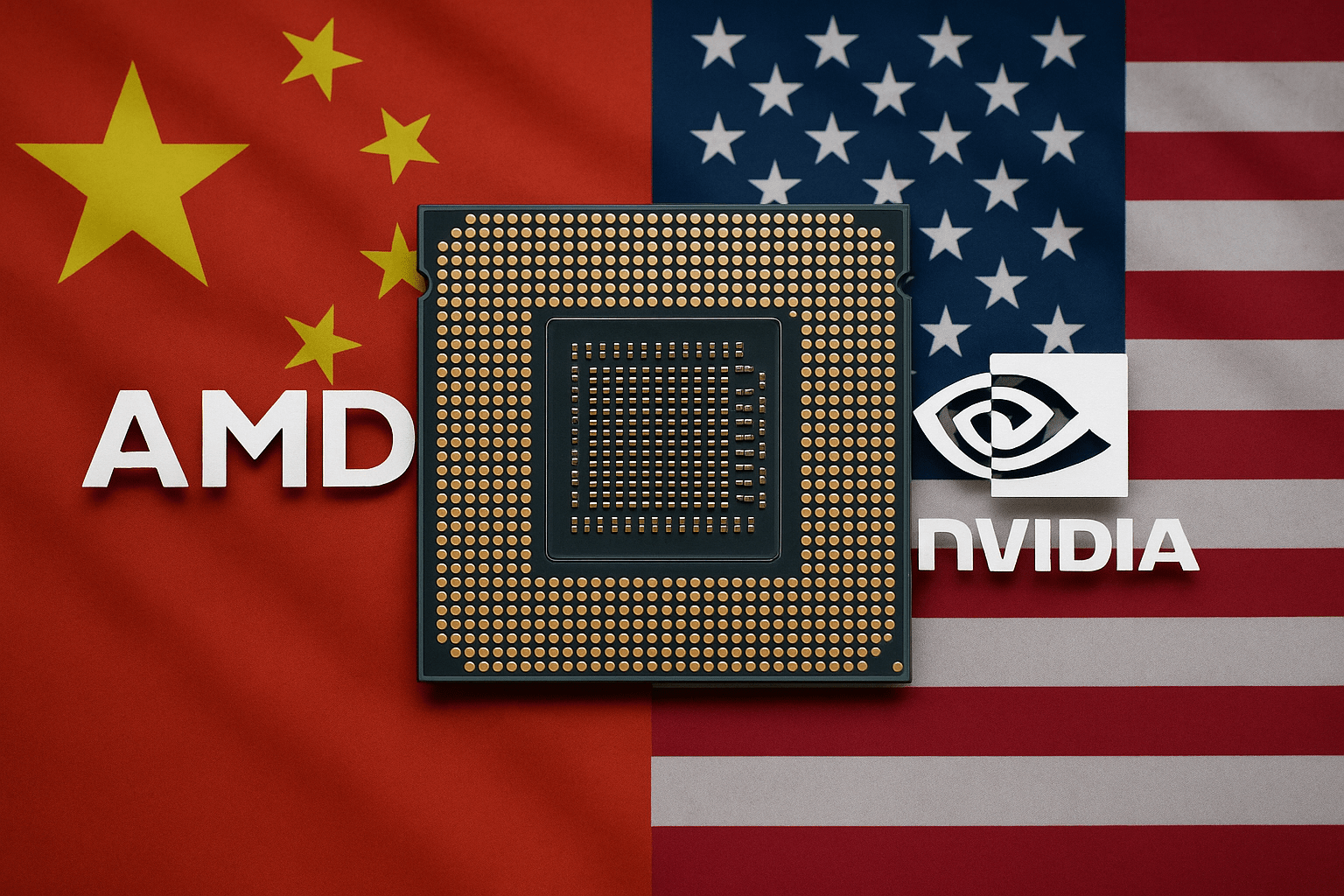based on materials from the site - By WalletInvestor

NVIDIA and AMD have entered into an unprecedented agreement in the tech world. In exchange for export licenses, both companies will pay the US government 15% of their revenue from chip sales for AI in China. This concerns NVIDIA's H20 AI accelerator and AMD's MI308 chips. The agreement was reached after a direct meeting between NVIDIA CEO Jensen Huang and President Trump. The companies see this as a way to continue competing in China, however, critics call it monetization of US trade policy.
Tariffs play a central role in the tech tension between the US and China
The Trump administration actively used tariffs to pressure China and change trade flows. Earlier this year, Trump threatened to impose a 100% tariff on imported chips if companies did not produce them in the US. Now, this 15% revenue-sharing agreement adds another layer. Instead of completely blocking sales, the US government is reducing tariffs. Proponents argue that this allows American companies to stay in the Chinese market while increasing domestic revenue. Opponents warn that this opens the door to dangerous compromises on national security.
Revenue sharing replaces traditional tariffs
The 15% agreement acts as a tariff but targets company revenues rather than imports. It turns the US government into a direct beneficiary from technology sales to China. No other American company has ever had to pay a part of its revenue to obtain an export license. Some trade experts see this as creative policy; others see it as a dangerous precedent. This move was made after several months of uncertainty regarding export controls, as licenses for the H20 and MI308 chips were granted only after high-level negotiations at the White House.
National security vs market access
Washington security experts are sounding the alarm over this agreement. They warn that NVIDIA's H20 could accelerate the development of artificial intelligence capabilities in China, including military applications. A group of 20 former officials even approached the Department of Commerce to request blocking the licenses. NVIDIA denies that the chip poses a military threat, claiming that export rules already limit its capabilities. However, the lifting of previous bans, especially after direct negotiations with Trump, has raised speculation that trade concessions may outweigh security considerations.
This chip deal unfolds against the backdrop of intensified trade negotiations between the US and China. Trump is pressuring Beijing to quadruple soybean purchases ahead of a key deadline in August. If an extension is not agreed upon, higher tariffs on Chinese goods will come back into effect. At the same time, the Department of Commerce has been instructed to freeze new export control measures to avoid angering China. For both the tech sector and agriculture, Washington's message is clear: tariffs and revenue sharing are now tools of a broader strategy aimed at ensuring a balance between economic benefit, political influence, and national security.
With us (in this group !), as a rule, remain exactly those (subscribers !), who are in search of fresh and relevant news, do not want to browse through dozens of different sites and news publications, and can afford to read all the most interesting in one news feed !!! 😉
Enjoy your viewing !!! 😊




